Ever since the military coup of February 1st an argument has been making the rounds whether the nationwide ceasefire agreement (NCA) signed on October 15, 2015 is still valid or not.
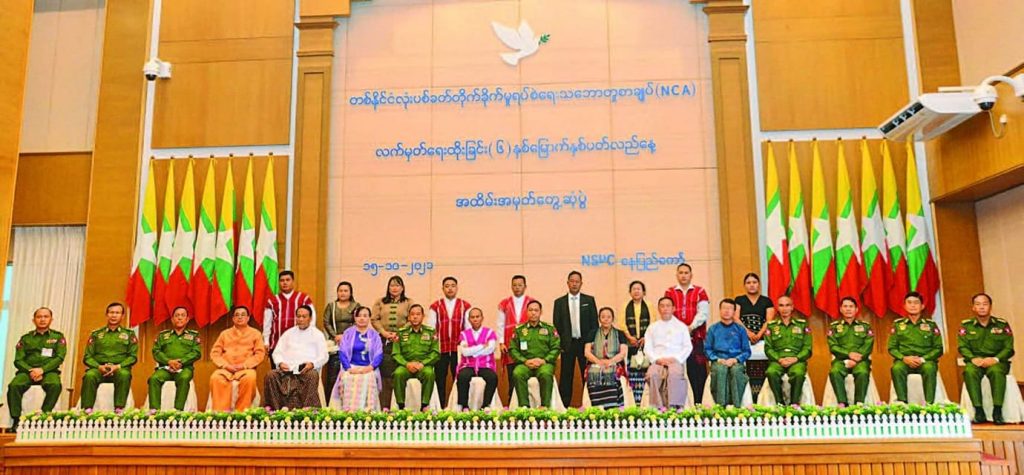
The majority of the NCA-Signatory-Ethnic-Armed-Organizations (NCA-S-EAOs) made up of All Burma Student’s Democratic Front (ABSDF), Arakan Liberation Party (ALP), Chin National Front (CNF), Democratic Karen Benevolent Army (DKBA), Karen National Union (KNU), Karen Peace Council (KPC), Lahu Democratic Union (LDU), New Mon State Party (NMSP), Pa-O National Liberation Organization (PNLO) , Restoration Council of Shan State (RCSS) are of the opinion that it is still efficacious to help produce a reconcile atmosphere.
But many others argued that the NCA died with the military coup of February, as it is hooked to the 2008 military-drafted constitution, while Khun Okker of PNLO recently said the NCA is ratified in the Union Parliament during President Thein Sein’s era and thus is a legal document which is still valid.
Whatever the case, to date the CNF has openly sided with the Committee Representing Pyidaungsu Hlutaw/ National Unity Government (CRPH/NUG) a shadow or parallel government competing against the coup-maker junta regime. The commitment of the KNU is also questionable as its armed wing Karen National Liberation Army (KNLA) Brigade 5 led by Gen Baw Gyaw Heh and watchdog KNU Concerned Group led by Naw Zippora Sein, an ex-KNU vice-chairwoman, rejected the NCA and have been openly sympathetic to the people’s revolution, now dubbed “Spring Revolution” and the shadow government, if not officially in league with it. Contrary to it the present Chairman Muto Say Poe position is also remarkable.
NCA meeting
The sixth anniversary meeting of October 15 which lasted from 09:00 to 12:00 was attend virtually by Gen Mutu Say Poe (KNU), Col Khun Okker (PNLO), Ja Yakob (LDU), and Nai Ong Ma Nge (NMSP).
Personally, Saw Steel (DKBA), Naw Kapaw Htoo (KPC), Saw Mara Raza Lin (ALP), Comrade Min Zaw (ABSDF), and Lt-Col Sai Kwang (RCSS) attended the gathering.
From the State Administartion Council (SAC) side, National Solidarity and Peace Negotiation Committee Chairman and Union Minister at the Union Government Office Lt-Gen Yar Pyae, committee members Union Minister Lt-Gen Tun Tun Naung, U Khin Maung Yi and U Khin Yi, Lt-Gen Ye Aung and Lt-Gen Khin Zaw Oo (retired) participated in the meeting.
During the meeting a pre-recorded 55 minutes speech of SAC Chief Gen Min Aung Hlaing was aired.
As usual he blamed the West for wanting to dominate the country under its influence. He also chided the EAOs for being illusionary or day-dreaming for not wanting to negotiate with the military, which came to power only after 1988, as it is not legally elected. He might have meant to say that Wa and Mongla got their self-rule status during the military government’s era. He went on to say that the problem arise today because of immaturity in implementing the democratic system. He might have wanted to say that the military is democratically matured.
Mutu Say Poe said while it is important to implement the NCA, it is also important to follow the guideline principles agreed in it.
Saw Steel, the new DKBA chairman said his group is cooperating in regional development and Covid-19 prevention, stressing that negotiation is the way to go.
Naw Kapaw Htoo, vice-chairwoman of KPC talked about her group’s peaceful development projects and said 42 schools and 8 medical dispensaries were opened.
Saw Mara Raza Lin said NCA has been achieved through hard work. In the beginning discussion were halted because of federal but now everybody is accepting it and even non-Bamar ethnic languages are allowed to be taught.
Comrade Min Zaw of ABSDF suggested that the NCA come into being because of EAOs and the military. He said in battles one must be ready to sacrifice his or her life, and for the benefit of the country one must also be ready to sacrifice its dignity, whatever he wanted to mean by it.
Sai Kwang of RCSS said that his group thanked ex-President Thein Sein for the implementation of resolving political problems through political means, and also thanked the National League for Democracy (NLD) government for implementing the 7-step roadmap, including the military (Tatmadaw).
Khun Okker of PNLO stressed that NCA is a legal document and cannot be nullified. If it is not comprehensive we can add more as amendments. It has to be continued as vowed by the signing parties. Signatory EAOs must work for the completion of Union Accord and strive to get back on track. For this he said all political parties and non-signatory brothers (EAOs) need to be involved.
Groups against NCA
On October 16, General Strike Coordination Body (GSCB) which has 30 member groups issued a statement lambasting the attendees of the sixth NCA signing anniversary and to reconsider their interaction with the military junta.
The statement pointed out the NCA-S-EAOs or Peace Process Steering Team (PPST) statement of February 20, which stated the full backing of civil disobedience movement (CDM); stopping all negotiations with the coup-maker junta; welcoming the CRPH nullification of military-drafted 2008 constitution; and endorsing the Federal Democracy Charter as a means to establish federal democratic union.
“Attending the sixth anniversary NCA meeting held by the military clique is contradicting the above said common agreement,” writes the statement.
Moreover, the statement seriously urges the signatory EAOs “not to communicate with the military clique decisively in the future by valuing their own publicized statement, people and new youth generation’s revolutionary spirit, and stand decisively in unison with the people.”
“In this Spring Revolution (played out between) the military clique and the people, rather than (dwelling on) who is going to win, (taking) decisive stance as touchstone between justice (Dhamma) and injustice (Ah-dhamma) is more important,” writes the statement philosophically.
CNF leader Salai Lian Hmung Sakhong told The Irrawaddy recently that the military junta has no right to call NCA meeting because the NCA is a document signed between the EAOs and the elected government and not with the military. And that is why his group did not attend the meeting.
Signatory EAOs and NCA-based solution
Meanwhile, Sao Yawd Serk Chief of the RCSS told the Thai PBS North in a recent interview that Min Aung Hliang may have another one last chance to do it right and that is to call for a round table peace process meeting to resolve the armed conflict plaguing the whole country, which in the past was limited only to the ethnic states. Following a few months after the violent crackdown of the people’s peaceful protests, the armed conflict has spread like wildfires to Bamar-dominated divisions of Sagiang, Mandalay, Magwe, Mongywa, Bago, and Yangon, including Chin and Karenni states, not to mention the ever ongoing armed conflict in the northern Shan State and Kachin State.
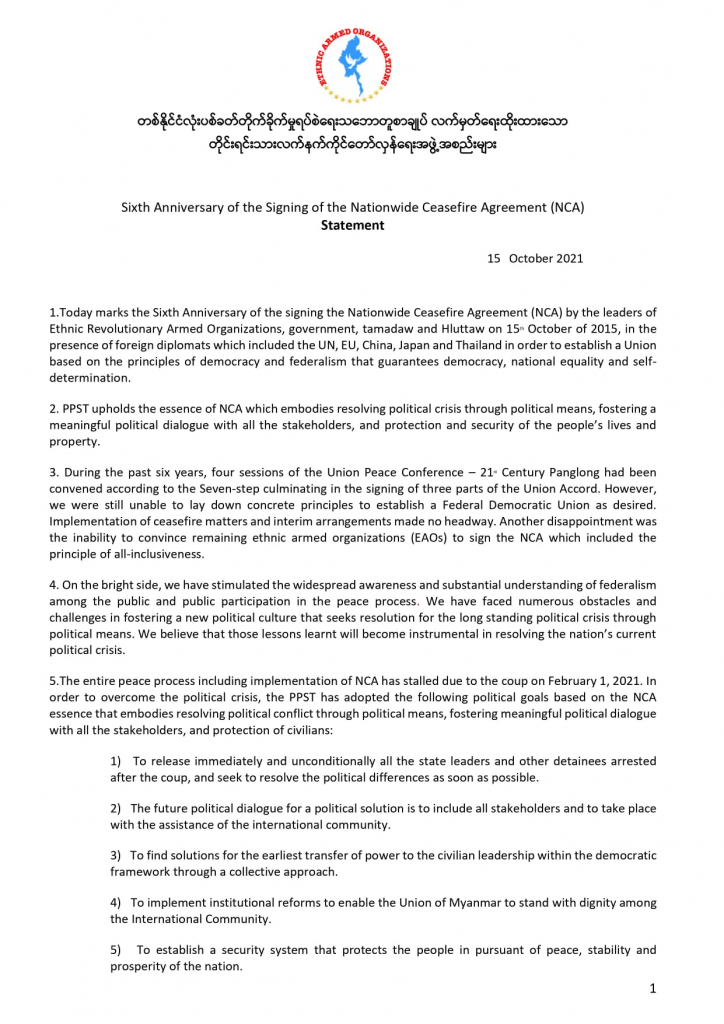
On the occasion of sixth NCA signing anniversary, the PPST issued an eight-point statement, in which it vowed to uphold the essence of NCA which embodies resolving political crisis through political means. The statement also mentioned the successful signing of three parts of Union Accord; stimulated the widespread awareness and substantial understanding of federalism among the public; the stalling of NCA process due to the February 1st military coup; welcoming the ASEAN effort to resolve the country’s political crisis; seeking humanitarian assistance for the displaced people and Covid-19 related support and programs for the people in NCA-S-EAO areas; calling for unconditional release of all detained political prisoners and urging all stakeholders to resolve the current political crisis through peace means.
Moreover, to foster meaningful political dialogue PPST has adopted the following political goals:
- To release immediately and unconditionally all the state leaders and other detainees arrested after the coup, and seek to resolve the political differences as soon as possible.
- The future political dialogue for a political solution is to include all stakeholders and to take place with the assistance of the international community.
- To find solution for the earliest transfer of power to the civilian leadership within the democratic framework through collective approach.
- To implement institutional reforms to enable the Union of Myanmar to stand with dignity among the international community.
- To establish a security system that protects the people in pursuant of peace, stability and prosperity of the nation.
On the same day, KNU also issued a statement largely in tune with the PPST statement. But it spelled out its request or rather the demand more precisely as follows:
- To release unconditionally those detainees including political leaders detained following the coup.
- To withdraw police and military troops back to their stations/bases throughout the country and to declare and practically implement a nationwide ceasefire.
- Focus immediately on implementation of humanitarian activities freely with the help of international support, remove restriction on all medical treatments including Covid-19 vaccination, protection, and treatment.
- Release firm orders for the provision of civilian protection to be followed by the police and military forces, and broad international monitoring process through international observers.
- Accept UN-supported international mediation for the ending of military rule, and negotiation for transfer of power to an inclusive and participative unity government with representation from all key stakeholders who are committed to federalism and solving the over 70 years long internal political conflict, rooted problems and causes.
- Tatmadaw to declare officially its commitment to a federal democratic state, and its withdrawal from politics.
Recent development
On October 15, coinciding with sixth NCA signing anniversary, junta released 114 EAO members on various charges, which include 61 from AA, 23 from KIA, 1 from KPC, 1 from Myanmar National Democratic Alliance Army (MNDAA) or Kokang, 12 from RCSS, 5 from Shan State Progress Party (SSPP), and 11 from Ta’ang National Liberation Army (TNLA).
On October 18, Senior General Min Aung Hlaing in his capacity of SAC chairman released 1316 political prisoners whom he mentioned as being misled by the CRPH/NUG. In the same vein, Lieutenant-General Aung Lin Dwe as secretary of the SAC withdraw lawsuits against 4320 persons misled by CRPH/NUG to cause chaos in the country, according to the SAC directives 186/2021 and 187/2021 respectively.
On October 15, Association of Southeast Asian Nations (ASEAN) took a rare bold step to exclude military government chief Senior General Min Aung Hlaing and will invite a non-political representative only from Myanmar to a regional summit this month, scheduled for October 26 to 28.
The decision, taken by foreign ministers from the ASEAN at an emergency meeting, marks a rare bold step for the consensus-driven bloc, which has traditionally favoured a policy of engagement and non-interference.
It is not clear whether this ASEAN justified downgrade of SAC has anything to do with the series of leniency dole out towards the junta’s opposition in custody and those facing trumped up charge lawsuits.
Analysis
As it is, the polarization of conflict parties has exacerbated the armed conflict within the country to an extend that there seems very little leeway for negotiated settlement.
The GSCB statement urging the signatory EAOs to join them in uprooting the military dictatorship rather than eyeing for political settlement may largely reflects the public mood, given the merciless crackdown of the junta which can be termed as war crimes or crimes against humanity.
On the other hand, the majority of the signatory EAOs are pinning their hope on peaceful negotiation with the expected help of international community. In other words, it wants to get the witnesses of NCA signed six years ago which include UN, EU, China, Japan and Thailand to be on board.
A few months ago the signatory EAOs have sent out feelers to all the mentioned witnesses and others, including ASEAN to help resolve the political crisis of Myanmar but the responses were not encouraging so far. But this time around if the SAC will decide to play ball according to the ASEAN five-point consensus, which is now highly likely due to the harsh stance now publicly shown, the political arena could look different.
For the moment, the US and EU backed the ASEAN approach and so do the UN. China is also for it but not keen that the West get involved, which means it wants to be the only one who should be involved together with the ASEAN.
This China’s stance may hinder meaningful international involvement in handling the ongoing Myanmar political crisis. But it is clear that peaceful negotiated settlement is the only way to go if we don’t want a protracted war to go on in the country.
And since, in the foreseeable future no side will win decisively, going to the round table for peaceful settlement may be the only viable option left.
But still there is a big worry that the junta will be treated as a political stakeholder and will continue to be part of the power in Burma’s political arena. For many, after the junta’s reign of terror and tyrannical rule since February that have killed thousands in its effort to oppress and cow the population, the people have no desire that it remains in politics in anyway.
Thus, working on the exit of the military from political arena may be part and parcel of the desired negotiated settlement. But whether the junta will yield to it is totally another question.





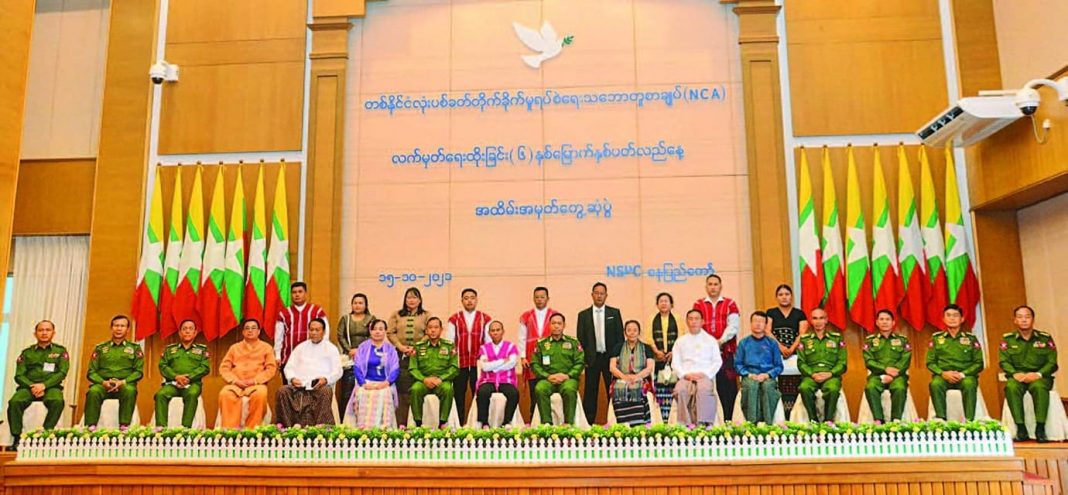
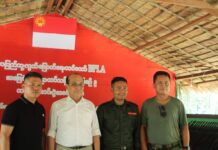
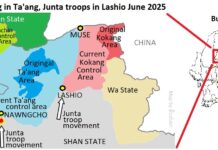
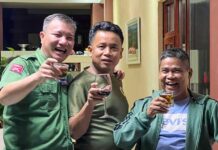
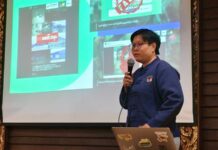
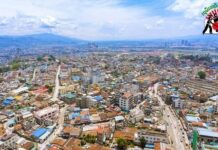




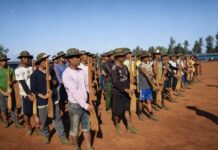

Leave a Comments